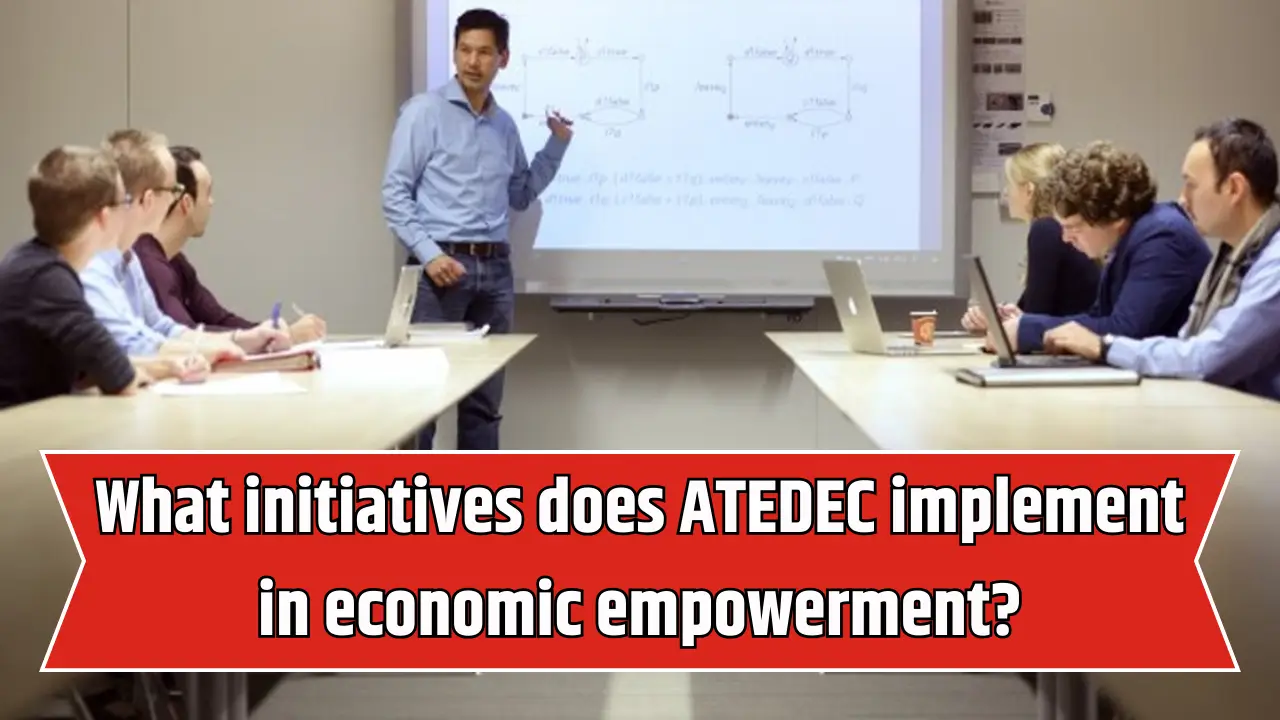ATEDEC (Action Technique pour un Developpement Communautaire) is a leading humanitarian and development NGO in Rwanda that has been pivotal in providing education and vocational training to vulnerable communities since its founding in 1995.
Rooted in a commitment to sustainable development and social inclusion, ATEDEC’s work in education and training spans formal schooling support, scholarships, vocational skills development, youth empowerment, and gender equality initiatives.
This article explores the diverse education and training programs operated by ATEDEC, illustrating their objectives, key activities, impacts, and recent advances as of 2025, all while highlighting how these programs foster empowerment and socio-economic resilience in Rwanda.
ATEDEC’s Education and Training Vision and Mission
Vision
To enable vulnerable communities, particularly youth and women, to acquire quality education and practical skills necessary for self-reliance, economic participation, and leadership.
Mission
- Facilitate inclusive access to formal education for marginalized children.
- Equip youth with market-relevant vocational skills to reduce unemployment.
- Empower women through skills training, microcredit, and leadership development.
- Collaborate with educational institutions and stakeholders to enhance learning quality and relevance.
Key Education Programs by ATEDEC
1. Education for All Program
Focused on ensuring access to formal education for children affected by poverty, displacement, and conflict:
- Construction and rehabilitation of primary and secondary schools in rural areas.
- Distribution of school supplies, uniforms, and learning materials to vulnerable children.
- Implementation of scholarship programs targeting orphans, girls, and marginalized youths.
- Teacher training and capacity building to improve quality education delivery.
- Partnership with local schools and education authorities to align programs with national curricula.
2. Vocational Training and Skills Development
To tackle youth unemployment and equip them with practical skills, ATEDEC runs numerous vocational and technical training initiatives:
- Vocational training in trades such as carpentry, mechanics, tailoring, information technology, agriculture, and entrepreneurship.
- Market-driven curriculum development to align skills taught with regional labor market demands.
- Work readiness and job placement support to facilitate youth employment after training.
- Collaboration with private sector actors for apprenticeships and skills recognition.
3. Youth Empowerment and Leadership Development
Besides technical skills, ATEDEC focuses on holistic youth development:
- Leadership training workshops to nurture civic responsibility, conflict resolution, and community participation.
- Social and cultural activities, including sports, to promote integration and teamwork.
- Mentorship programs connecting youth to successful role models and professionals.
4. Women’s Education and Economic Empowerment
Recognizing the crucial role of women in development, ATEDEC implements programs combining education with economic empowerment:
- Training women in vocational skills such as tailoring, basket weaving, beadwork, and small business management.
- Providing microfinance and startup capital to female-led enterprises.
- Gender rights awareness and advocacy campaigns to address inequalities and violence.
- Encouraging women’s participation in community governance and decision-making.
Impact and Achievements in Education and Training
| Program | Key Achievements | Impact Indicators |
| Education for All | Built and supported multiple schools in rural areas | Increased school enrollment and retention, especially for girls |
| Scholarship Programs | Supported hundreds of vulnerable children annually | Improved academic performance and reduced drop-out rates |
| Vocational Training | Trained thousands of youth in market-relevant skills | High post-training employment and entrepreneurship rates |
| Youth Leadership | Developed community youth leaders and active citizens | Youth participation in local governance and development projects |
| Women’s Empowerment | Enabled over 1000 women in skills training and microfinance | Increased women-led businesses and household incomes |
Latest Updates in 2025
ATEDEC continues to innovate and scale its education and training programs in line with contemporary challenges and opportunities:
- Digital Learning Integration: Introduction of e-learning modules and digital literacy classes complement traditional teaching, especially in ICT skills.
- Expanded Scholarship Coverage: Enhanced focus on vulnerable groups including children with disabilities and refugee children.
- Private Sector Partnerships: Collaborations to create apprenticeship programs linking youth training directly to job placements.
- Entrepreneurship Incubators: Programs to coach vocational graduates in business development and market access.
- Women’s Leadership Forums: New platforms for women to engage in advocacy, networking, and policy dialogue.
- Sustainability and Climate Education: Inclusion of environmental education and sustainable practices in curricula and training.
Summary Table: ATEDEC’s Education and Training Program Framework
| Program Area | Activities | 2025 Innovations |
| Formal Education Support | School construction, scholarships, teacher training | Digital education tools, special needs inclusion |
| Vocational Training | Skill development in trades, ICT, agriculture | Apprenticeships, market linkage, entrepreneurship coaching |
| Youth Empowerment | Leadership, civic education, social activities | Mentorship programs, youth-led initiatives |
| Women’s Education & Empowerment | Vocational skills, microfinance, rights advocacy | Women’s leadership forums, gender equality training |
Challenges and Strategic Response
Challenges
- Funding limitations restrict scaling programs.
- Geographic and infrastructural barriers limit rural access.
- High youth unemployment despite training emphasizes need for market alignment.
- Gender and social norms sometimes hinder women’s participation.
- Need for continuous curriculum adaptation to emerging market and technology trends.
Strategic Approaches
- Diversifying funding sources including local private sector support.
- Strengthening community involvement to improve access and relevance.
- Enhancing digital and blended learning methodologies.
- Advocating for structural reforms to support youth employment and gender equality.
- Continuous monitoring and evaluation to improve program effectiveness.
Conclusion
ATEDEC’s contribution to education and training has been transformative for Rwanda’s vulnerable populations, particularly youth and women.
By ensuring access to quality education, developing market-relevant vocational skills, and empowering community members through leadership and economic opportunities, ATEDEC strengthens the foundation for sustainable development and poverty reduction.
As of 2025, ATEDEC is poised to meet future challenges with innovation, partnerships, and an unwavering focus on inclusive empowerment.
These efforts not only equip individuals with skills and knowledge but also inspire confidence and hope, fueling Rwanda’s broader socio-economic progress towards Vision 2050.













